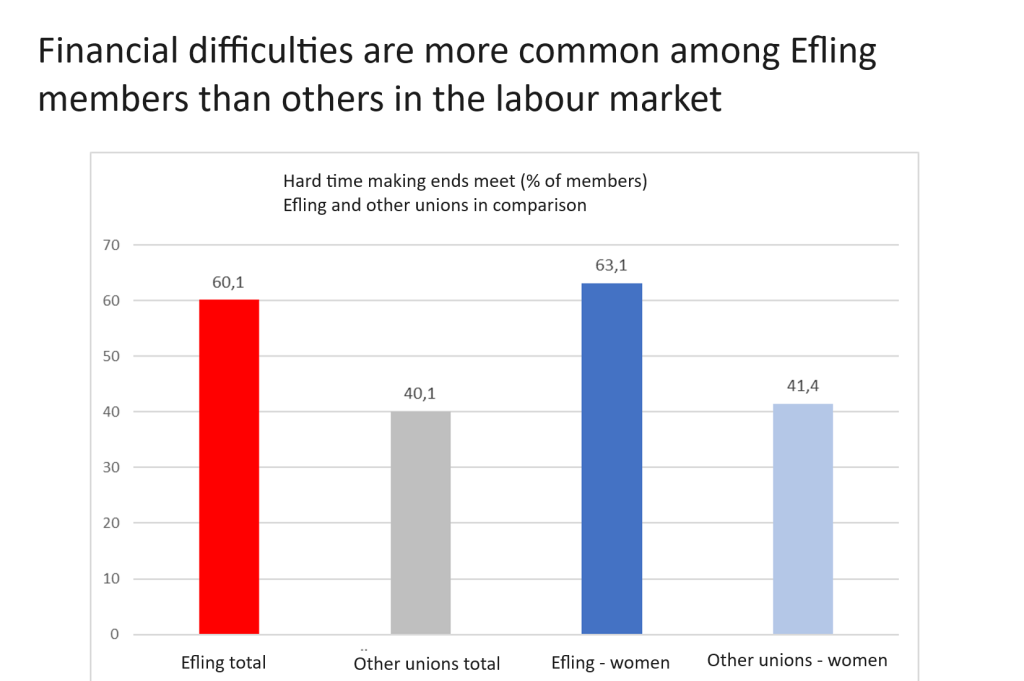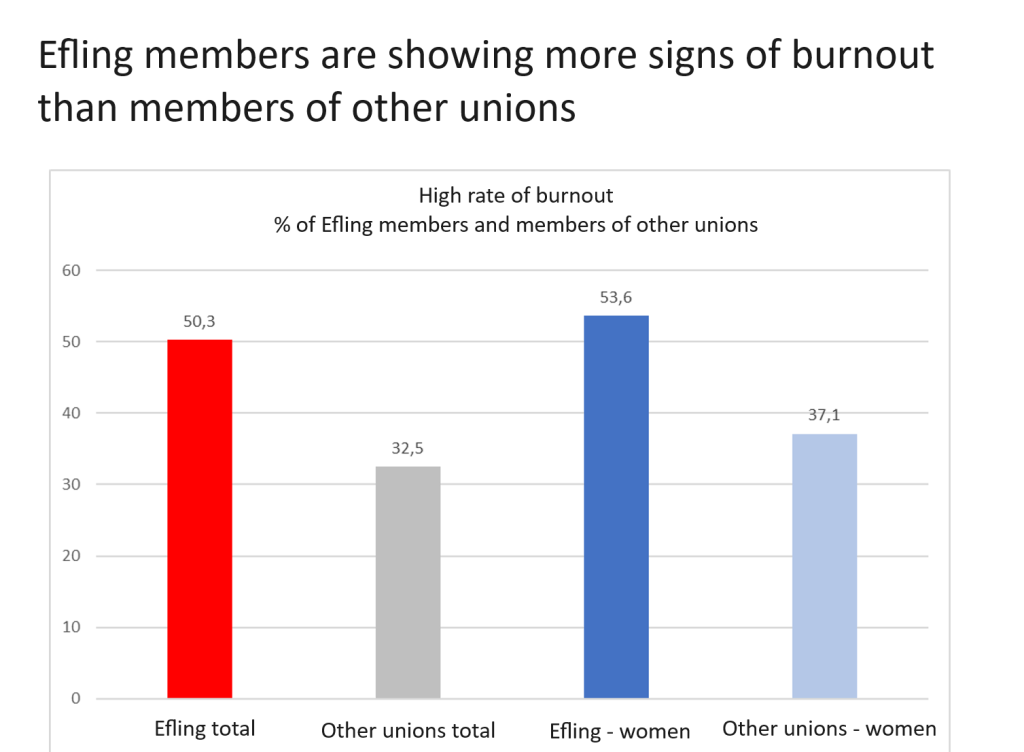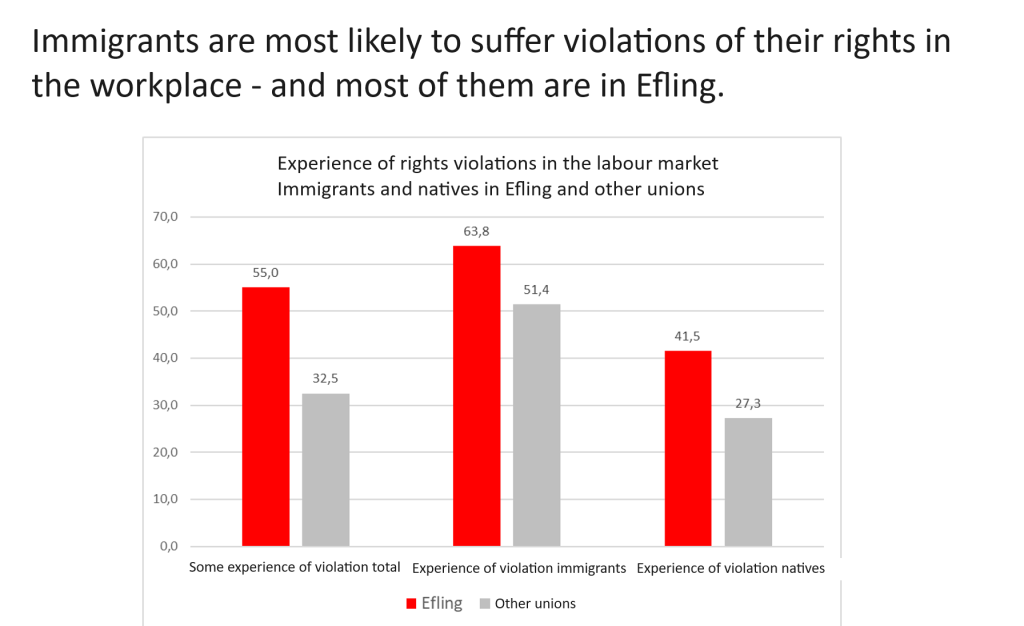Yesterday tens of thousands of women and non-binary people came together to a rally on Arnarhóll in the largest women’s strike since the first time Icelandic women took a day off from work to protest in 1975. Among other things the meeting demanded immediate action to correct the salaries of women and non-binary individuals, a special campaign was to eradicate prejudice against minorities, and an end to gender-based violence.
Many Efling women could not attend the rally as their employers did not give them a paid day off from work. Efling women are workers in low wage jobs. They perform essential tasks for society, and they make the wheels of the economy turn. They are completely indispensable but at the same time they must put up with the worst salaries in the Icelandic labour market.
The results of the survey made by Varða – Research Institute of the Labour Market in February of this year among members of ASÍ and BSRB clearly demonstrates the difficult situation of working people in Iceland. When the focus is put on Efling women their dire situation becomes especially distinct. 63% of Efling women have a hard time making ends meet. More than a half is having a hard time coping with the burden of high housing cost. An equal share is not able to deal with a surprise expense of 80.000 kr. Half of Efling women self-reports their mental health as bad and about 53% of Efling women have signs of burnout, which is considerably more than among members of other unions. Efling members with foreign backgrounds are most likely to suffer rights violations in the labour market, and about 52% of Efling women of foreign descent have experienced one or more violations of their rights in the workplace.
- About 63% of Efling women has a hard time making ends meet.
- More than a half is coping with the burden of high housing cost.
- About 55% of Efling women are not able to deal with a with a surprise expense of 80.000 kr.
- About 50% of Efling women has bad mental health.
- Efling women score the highest in the symptoms of burnout, about 53% show signs of burnout.
- Almost 52% of Efling women have experienced a violation of their rights in the workplace.



The complete results of the survey can be read here.
The condition of working women is a shame on our society. There is an immediate need to fix their conditions. Indispensable women deserve a decent wage and a life free from health-damaging worries and stress. Let’s fight together for better working conditions for women and non-binary workers!